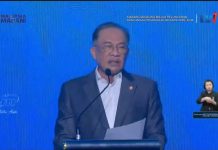
Imagine walking into a Tokyo department store and discovering a sleek, eco-friendly soap brand proudly made in Kota Kinabalu, Sabah —or stumbling upon a viral TikTok showcasing a beautifully handcrafted tengkolok from a Kelantan artisan. This is not a fantasy—it’s the untapped potential of Malaysia’s rural entrepreneurship waiting for a purposeful revival.
Over two decades ago, Malaysia introduced the One District One Industry (ODOI) and subsequently, the One Kampung One Product (1K1P) movement, drawing inspiration from Japan’s One Village One Product (OVOP) initiative. The aim was simple but impactful: empower local communities to generate income through unique, culturally rooted products, be it traditional food, handicrafts, herbal remedies, or textiles.
The concept was proposed within discussions on inclusive development, highlighting the potential of IKIP (Inclusive Innovation and Knowledge-sharing Initiative for 1K1P) as a tool to support local development. In line with this, the Eleventh Malaysia Plan (2016–2020) outlined inclusive development strategies to address the needs of the underserved group.
Despite this policy backing and initial enthusiasm, the broader impact of 1K1P stalled. A major limitation of the early 1K1P initiative was its over-reliance on traditional marketing and top-down grant allocation, often delivered without sufficient business capacity building. While many rural-based entrepreneurs received equipment and startup support, they lacked skills in branding, packaging, digital sales, and customer engagement; all critical in today’s competitive landscape.
As global consumers migrated online, rural Malaysian entrepreneurs were left behind, unable to reach markets beyond their immediate communities. Equally important was the lack of youth engagement. Many youths viewed rural enterprise as irrelevant or lacking growth potential, resulting in a widening rural-urban aspiration gap.
The Case for a 1K1P 2.0 Reboot
A reimagined version—1K1P 2.0, is needed not just to preserve tradition, but to transform it into a modern, inclusive, and digitally-enabled rural enterprise model that serves as a catalyst for the underserved community’s income mobility.
To start off, 1K1P 2.0 should prepare entrepreneurs to thrive on e-commerce platforms. Skills in smartphone photography, customer engagement, packaging logistics, and digital marketing are no longer optional—they are essential for survival.
Meanwhile, NGOs, local councils, and university outreach programs can serve as frontline enablers supporting the transition to tools like WhatsApp Business or Facebook Marketplace, which can provide rural businesses with new lifelines. Additionally, local universities and polytechnics can partner with these businesses to co-create professional product packaging, content, and marketing assets. This approach preserves authenticity while upgrading market appeal.
To sustain 1K1P 2.0, rural entrepreneurship needs to be repositioned as a platform for creativity, sustainability, and social impact to attract youth. Youth entrepreneurship programmes and incubators should expand their focus to include rural micro-enterprises. These intergenerational collaborations might not only revive rural brands, but also provide meaningful experiential learning.
On the corporate front, GLCs and large organisations can make a real difference by supporting 1K1P-certified produce for their major events. By adopting kampung products into institutional supply chains, these buyers provide market stability and income opportunities.
Corporate Social Responsibility programmes could perhaps look beyond one-off donations and instead invest in capacity-building—funding co-working spaces, digital studios, or shared logistics hubs that can be used by rural-based entrepreneurs.
Timing is Everything
The post-pandemic economy has made income diversification, digital adoption, and local resilience more important than ever. As Budget 2025 signals new priorities for inclusive and digital growth, 1K1P 2.0 could serve as a cornerstone initiative not just for rural development, but for national economic recovery.
The original vision of 1K1P remains as relevant as ever. But to realise its full potential, let’s reinvent it as a national mission to drive inclusive entrepreneurship, powered by digital tools, creative youth, and strategic partnerships.
Rather than replicating outdated aid models, Malaysia now has the opportunity to build a dynamic ecosystem that enables rural entrepreneurs to grow sustainably and competitively in the digital era.
Associate Professor Dr Chong Wei Ying is the Deputy Director of the Eradicating Poverty Impact Lab at Taylor’s University.



